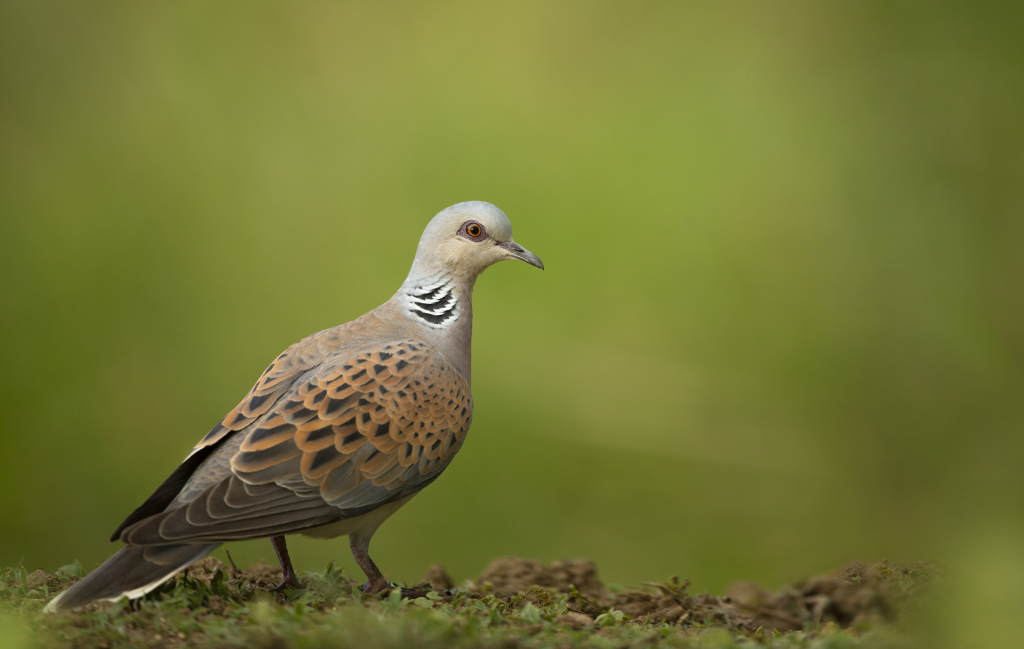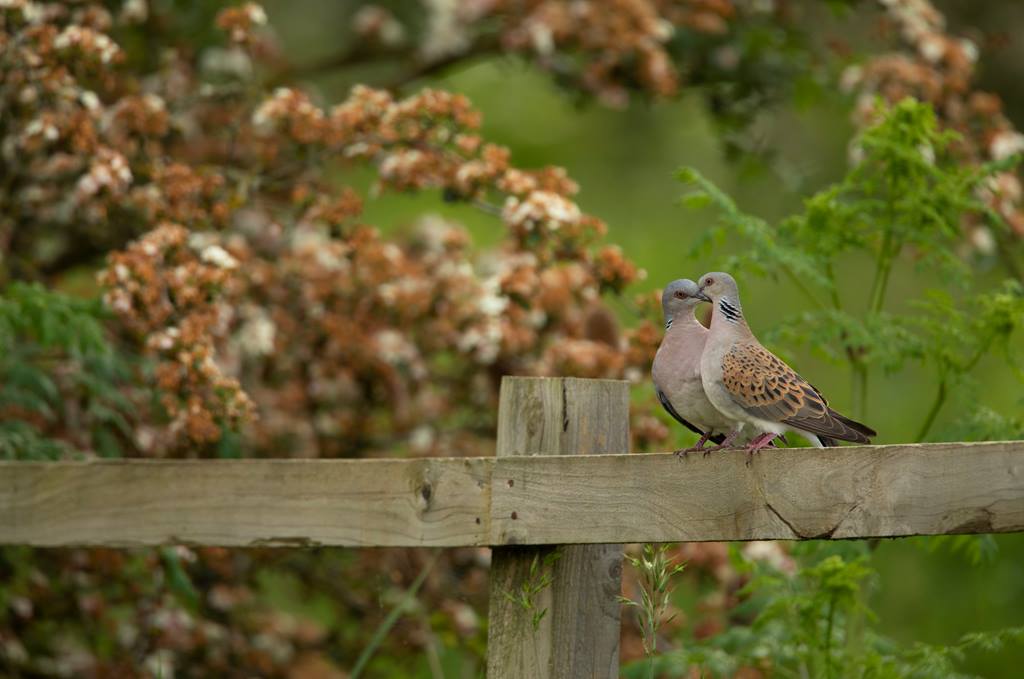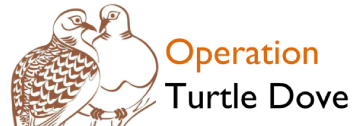Spring means one thing for anyone involved in Turtle Dove conservation – Turtle Doves are returning! As we write this in early April, the birds will have already spread their wings and be well into their long voyage from the savannahs of West Africa, across the Sahara and the Mediterranean Sea and into Iberia and France to arrive in the countryside of south-east and eastern England. In fact, records are already coming in so we know that some birds have arrived. We can’t wait to hear their purring calls once more.
A good year
When the birds arrive, we hope they’ll find the hundreds of Turtle Dove foraging plots that were created last year – for 2023 was a busy one for Turtle Dove conservation. We worked with land managers across the south-east and east of England to create 620 foraging and supplementary feeding sites, providing much-needed seed food for Turtle Doves. We know that providing the birds with good quality feeding habitats is essential for their population recovery so to see so many people coming together to provide such important resources for the birds is fantastic.
What’s more – for a third year running, in 2023 autumn hunting was paused in France, Spain and Portugal, likely saving the lives of around one million Turtle Doves that migrate through these three countries.
2023 was a good year for Turtle Doves and we’re determined to keep up that momentum in 2024.

Looking ahead
So, what are our priorities this year? This is a key time for our team of Turtle Dove advisors as they continue to support the incredible people – farmers, land managers, communities and many other groups – who are working hard to create suitable breeding season habitats for the birds.
The temporary hunting ban has given Turtle Doves throughout western Europe a much-needed break, and there are the first tentative signs that this breeding population, of which UK birds are a part, is in the early stages of recovery. Now is the time to double-down and make sure that there is a plentiful supply of seed-rich plants, dense scrub and hedgerows and accessible water sources for the birds when they arrive. We’ll also continue to engage with the consortium of organisations involved in working to ensure that any future Turtle Dove hunting in France, Spain and Portugal is carried out at sustainable levels.
Working together
We’ve already got off to a great start – in March we brought together organisations and individuals from across the UK and Europe in an online conference to share knowledge and experiences of Turtle Dove conservation.
We were joined by a fantastic range of speakers on topics including the temporary hunting moratorium and how the new agri-environment scheme in England can deliver for Turtle Doves. We also heard from some enlightening case studies from groups creating small plots for Turtle Doves, the delivery of a ‘Dovetropolis’ in Kent, providing Turtle Dove habitat on golf courses and survey techniques being used to improve Turtle Dove counts in Belgium. The conference was full of inspiration and hope, and it was wonderful to see so many people coming together to share their knowledge.
Seeds of hope
Our fantastic Turtle Dove advisors have now moved into full-scale delivery mode, providing farmers and other land managers with supplies of Turtle Dove seed mixes to put out on the ground so that the birds have plenty of food to tuck into when they arrive. This supplementary seed can provide an important stop gap resource when seeds from plants in the countryside are harder to come by in early spring.
For Turtle Dove advisors like Mark Nowers, it’s a busy but exciting time: “Talking to the landowners I work with, there’s a sense of excitement in the air as we wait for Turtle Doves to start arriving. From putting out supplementary feed to creating foraging plots and restoring ponds, there’s a network of people out there making great habitat for Turtle Doves and we can’t wait to see the birds again.”

Thank you
Thank you to everyone involved in creating habitat for Turtle Doves – here’s to another productive year.
If you do spot a Turtle Dove over the next few months, please record it via Birdtrack.
And if you’re interested to learn more about our work, check out our frequently asked questions and the news section of our website to learn more.








